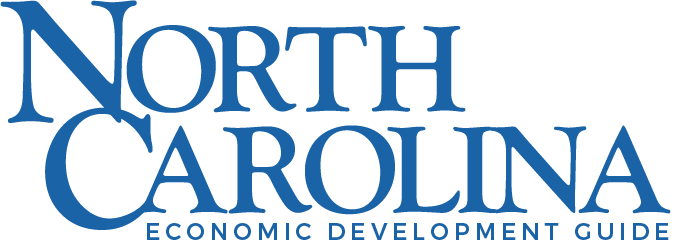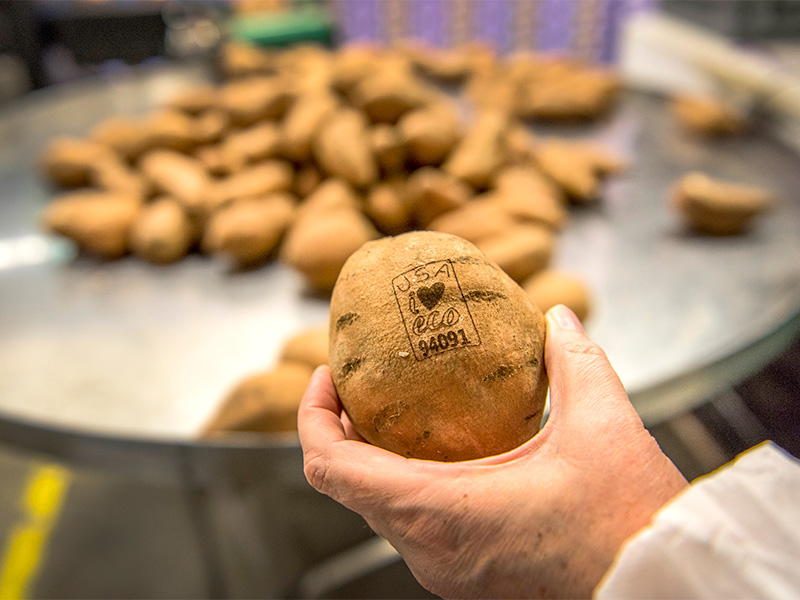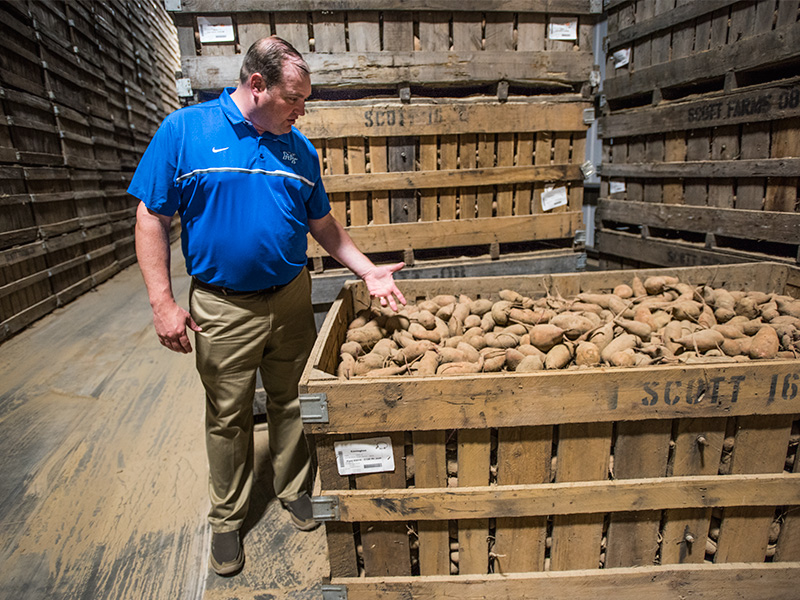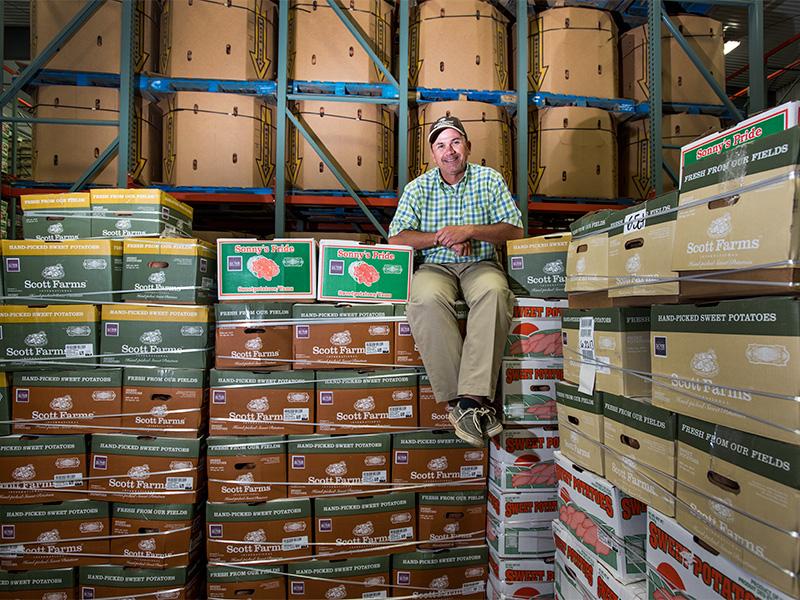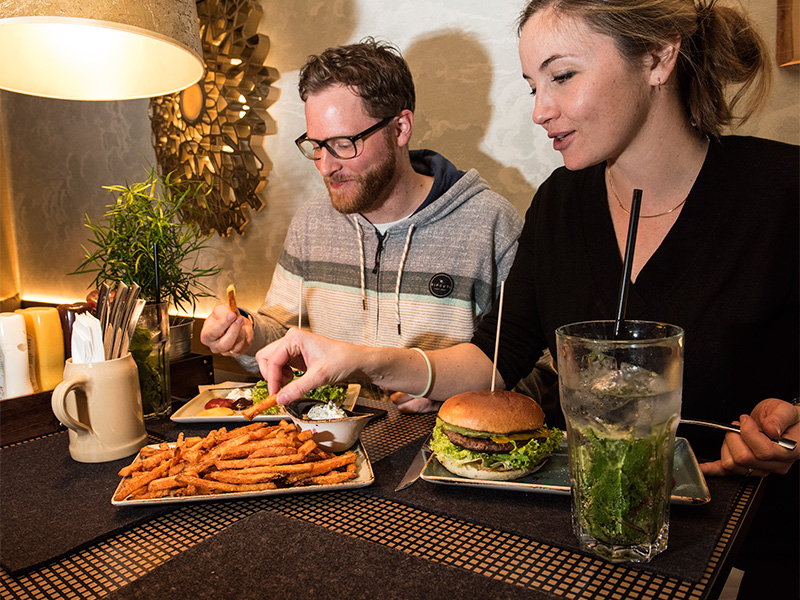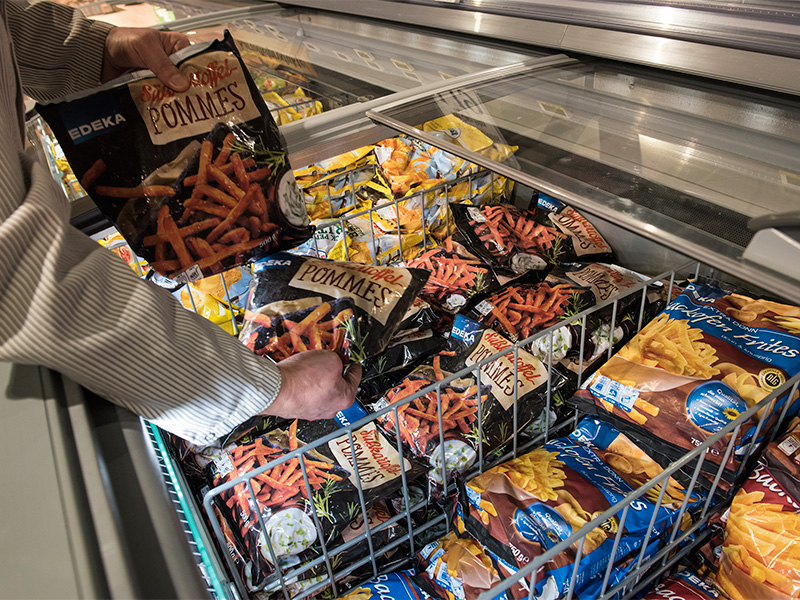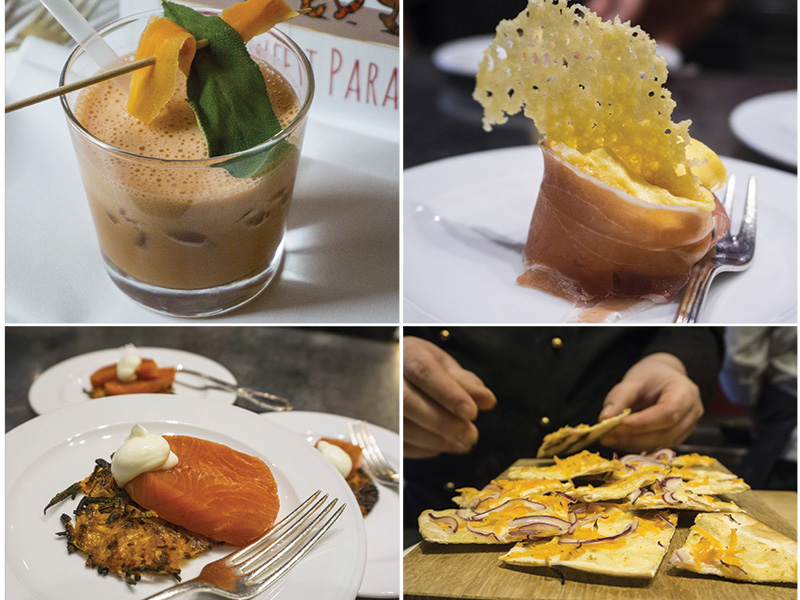Hot potato
Europe’s got a taste for one of North Carolina’s top crops. How the humble sweet potato became hip.
By Allison Williams
Photos by Cindy Burnham
A woman and her granddaughter poke small spoons into the orange puree any Southerner would recognize from their Thanksgiving table. Though North Carolinians might look askance at the sweet potato curry Eva Drescher dishes up on a chilly spring morning halfway across the world, the German grandmother isn’t sure what to make of an orange potato — if it’s sweet, she asks Drescher, can it really be healthier?
Sweet potato plants aren’t even in the fields yet at Vick Family Farms in Wilson, in eastern North Carolina, but in Hamburg, Germany, Drescher is handing out samples of the Vicks’ primary product to lunchtime grocery shoppers. Europeans are buying. In the last decade, exports of sweet potatoes from North Carolina have jumped more than 1,000%, from about 24 million pounds in 2006 to 377 million pounds last year or, put another way, about 500 shipping containers to about 7,800, worth about $138 million.
North Carolina is a relatively small exporter compared with oil-rich Texas or states dominated by large car plants. Aircraft parts and medicine are the state’s most valuable exports, according to the U.S. Census Bureau, accounting for nearly half of an $11 billion export business. But few should discount farming, North Carolina’s largest industry. The state holds the No. 1 spot in the U.S. for sweet potatoes and tobacco. At the N.C Department of Agriculture, sweet potatoes are its runaway success story, the food fad many Europeans have embraced just as Americans can’t get enough kale (much to the amusement of some Southerners).
“We have a blank slate there,” says Dewey Scott, whose family farming business opened an office in the United Kingdom more than a decade ago. “What the the European market has done for the sweet potato has not gone unnoticed.”
The state agriculture department has been promoting sweet potatoes in Europe since the 1990s but ramped up efforts about a decade ago, hiring a German marketing agency in 2007. In 2016, several N.C. growers, the American Sweet Potato Marketing Institute and Eosta, a Netherlands-based importer, developed the idea of an annual International Sweet Potato Week in Germany, France, the Netherlands, Poland and other European countries. Promotions include grocery-store tastings and a roving sweet potato food truck in Germany, which has especially embraced the N.C. crop.
It’s a long way from Hamburg to Scott Farms International headquarters in Lucama, about halfway between Raleigh and Greenville, but more than half of the sweet potatoes rolling down the company’s packing line will wind up in stores overseas. Scott potatoes are picked in five eastern North Carolina counties, then housed at four different sites in temperature-controlled buildings twice the size of an average supermarket before being packed and shipped through the ports in Morehead City and Wilmington. It’s this ability to store sweet potatoes year-round that sets North Carolina growers apart from worldwide competition. Israel, Spain and Honduras, to name a few countries, grow and export sweet potatoes, but none of them have the same infrastructure as North Carolina’s largest sweet potato producers.
North Carolina not only grows more sweet potatoes than any other state, it exports more, too — about 95% of the crop sent overseas is grown here. Nowhere has demand been greater than Europe — first the United Kingdom, now northern Europe — where the sweet potato has appeared on the cover of popular food magazines in ways many Americans wouldn’t recognize, sliced and popped into toasters as a breakfast food or grilled for salads. Many of these recipes are the brainchild of Bonn, Germany-based mk2 marketing and its CEO and owner, Maria Kraus. If you’ve heard of Alaskan salmon or Canadian blueberries, it’s probably due to mk2’s specialty food marketing. The N.C. Sweet Potato Commission and the newly formed American Sweet Potato Marketing Institute, headquartered in Benson in central North Carolina, contract with mk2 for special events. It was Kraus who implemented International Sweet Potato Week, when giant banners in grocery stores encourage shoppers to “Look at the Sweet Side of Life” by buying süßkartoffel (German for sweet potato), or sötpotatis in Sweden.
Up until about a decade ago, sweet potatoes were considered a novelty in Europe, an exotic food more likely to be found in specialty African markets than mainline grocery stores. Flo and Isa Schellen first cooked sweet potatoes in a South African cooking class in Hamburg. On a spring afternoon, the young couple shared sweet potato fries at Peter Pane, a popular burger chain in the city.
“Sweet potatoes are going to be a mainstream product,” says Robert Walsleben, a Texas native who is the European director of Robinson Fresh. The company is a division of Minnesota-based logistics firm C.H. Robinson. It already is, as shoppers at German supermarket Edeka swirl around Walsleben, many adding sweet potatoes from Wada Farms, an Idaho-based grower with operations in North Carolina, to their carts.
At Scott Farms, fresh sweet potatoes are the family’s bread and butter, but lately the Scotts have been turning their attention to processed sweet potatoes. Pembroke-based Trinity Frozen Foods is exporting frozen sweet potato fries to Europe. Scott Farms’ sweet potato spirits and chips have been so successful in the U.K., they are considering building a manufacturing plant in North Carolina, bringing an export back home.
